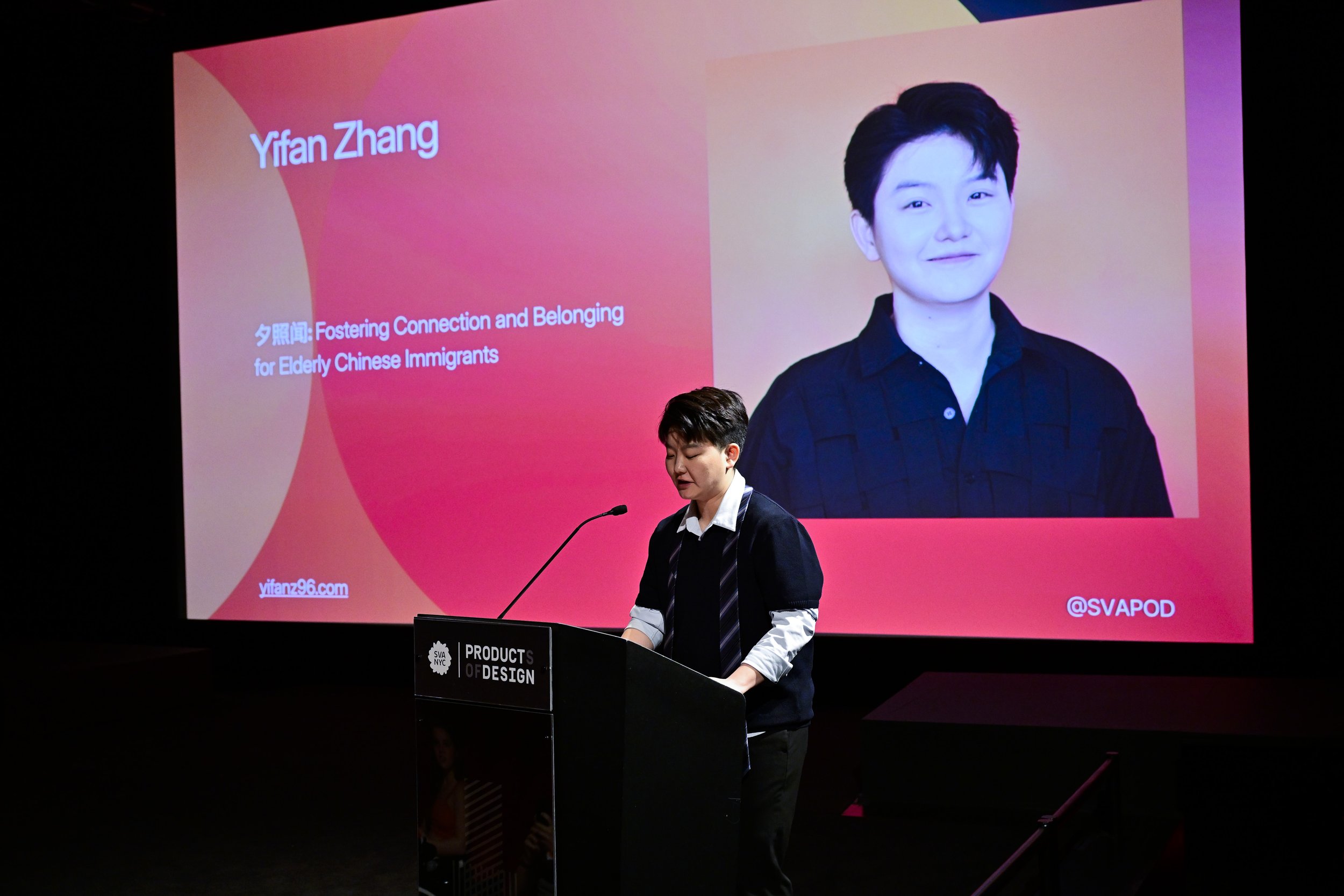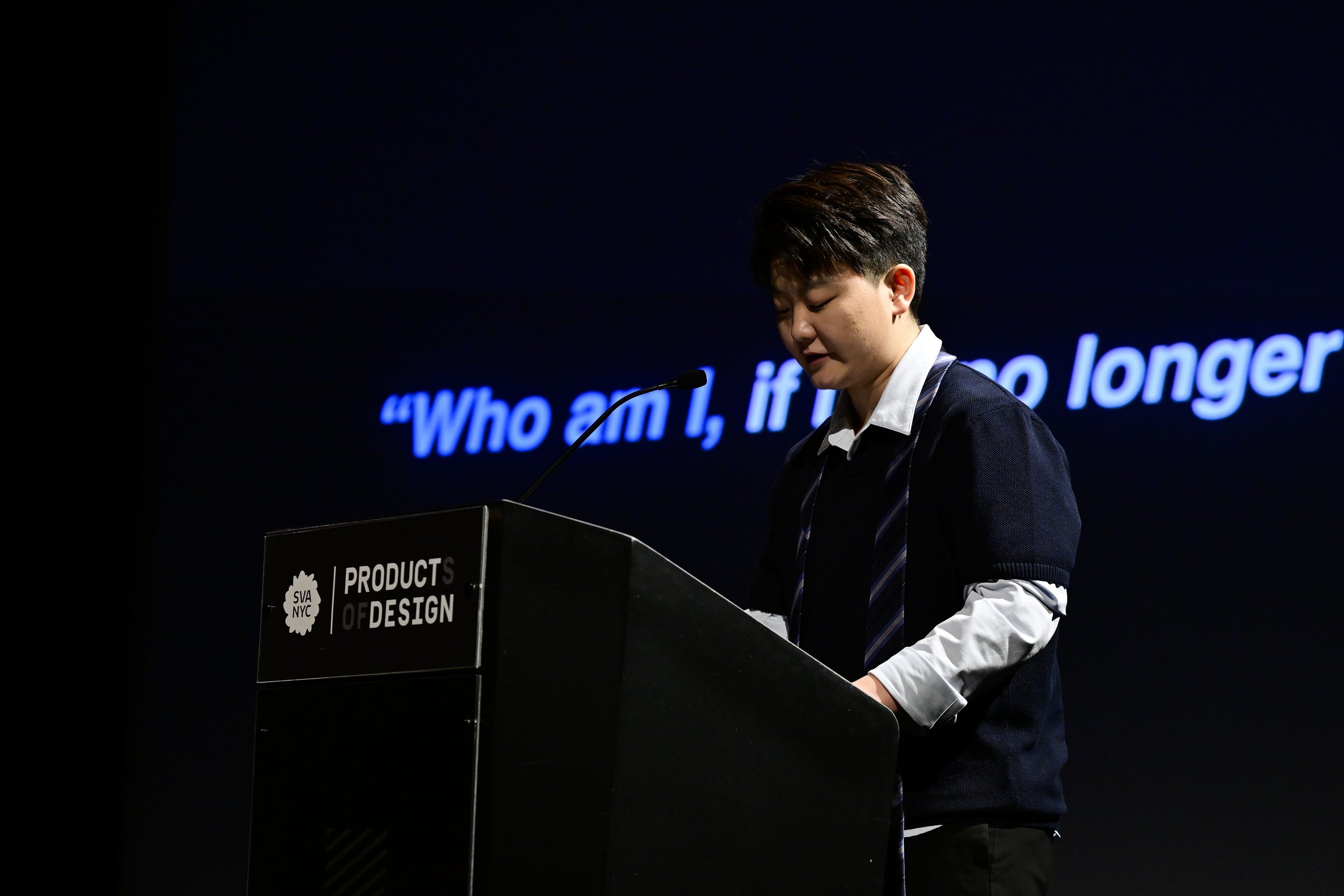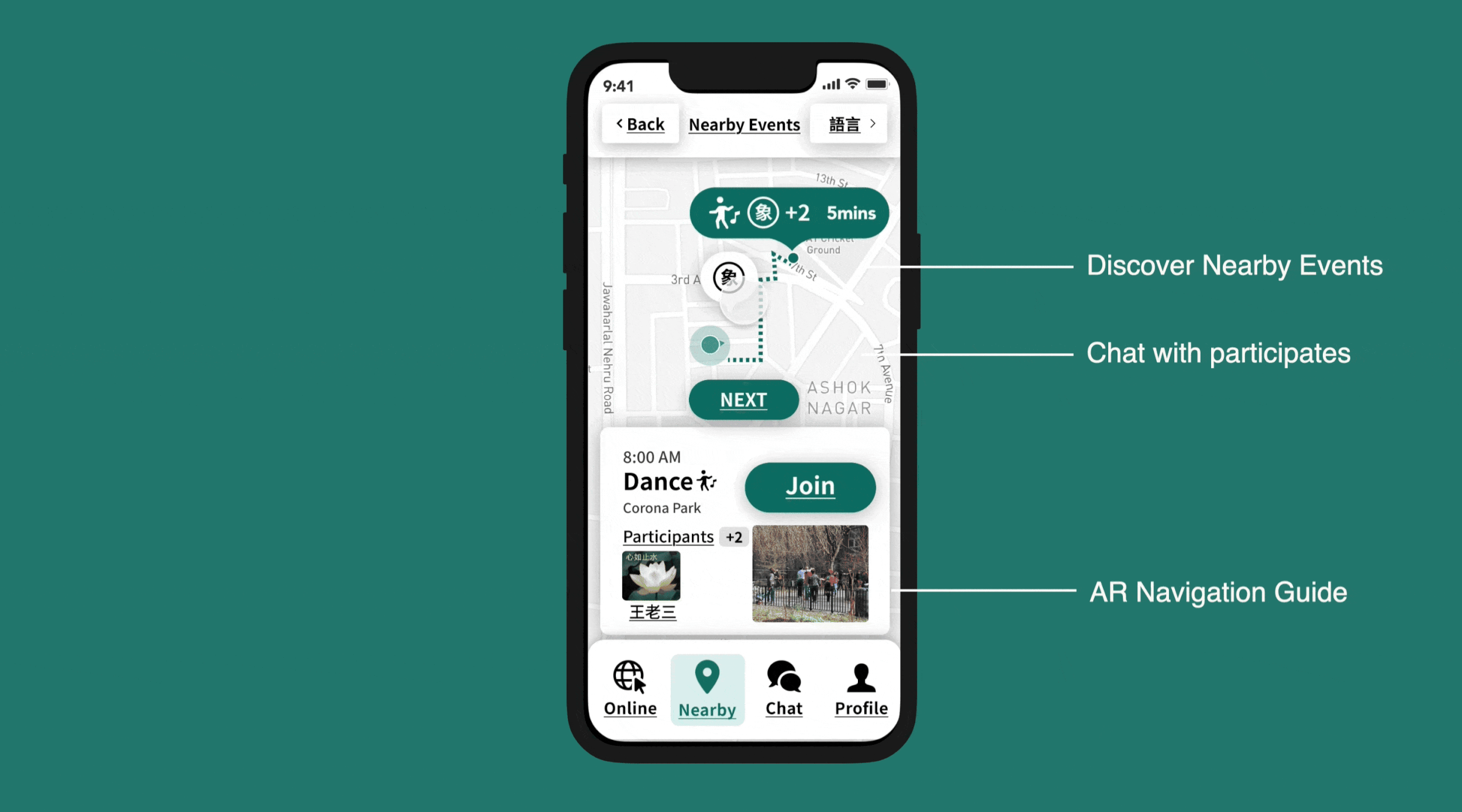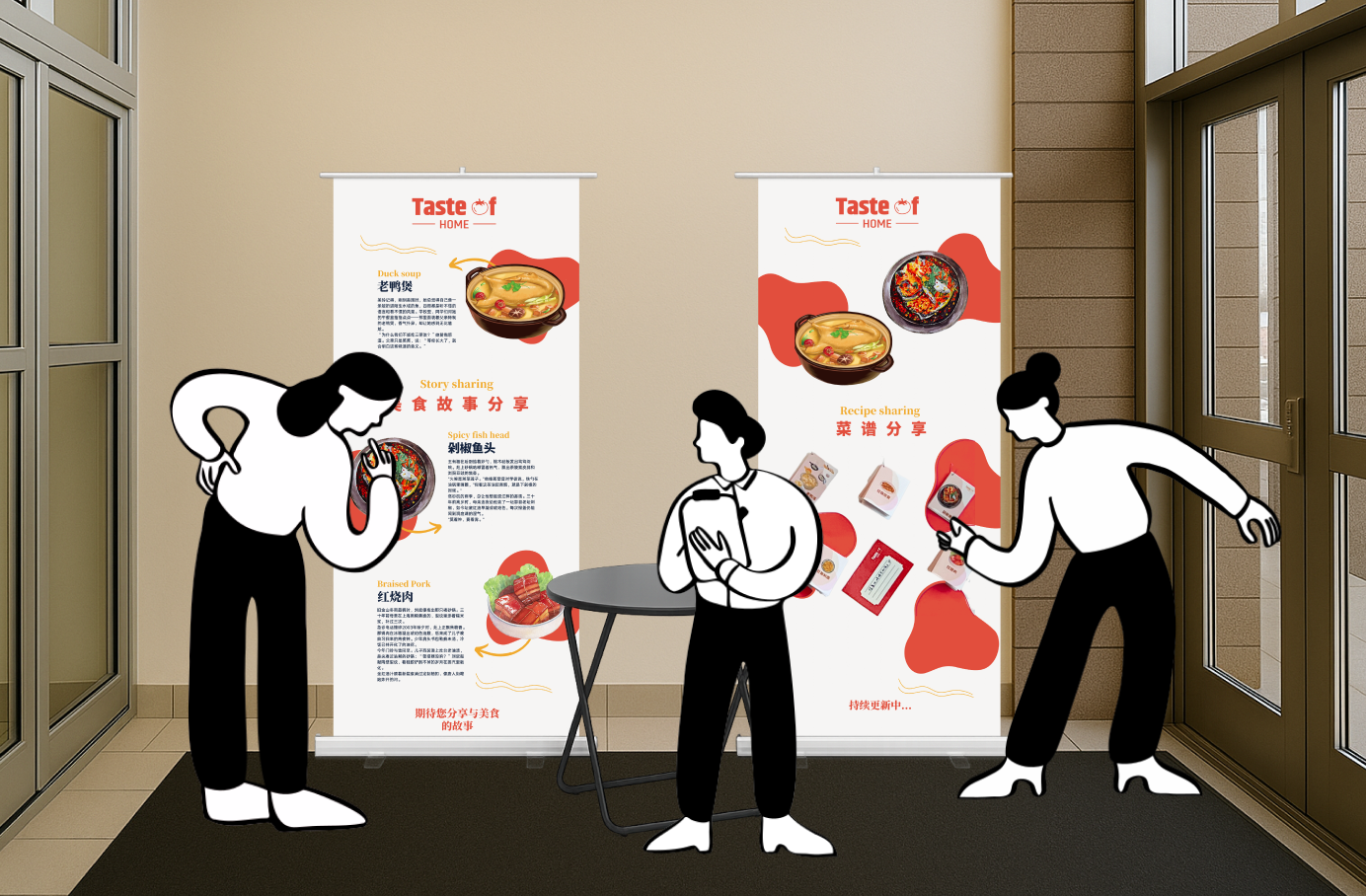夕照闻: Fostering Connection and Belonging for Elderly Chinese Immigrants
Yifan Zhang’s thesis, 夕照闻: Fostering Connection and Belonging for Elderly Chinese Immigrants, reimagines aging not as a period of retreat, but as an opportunity to design for cultural continuity, emotional resilience, and meaningful connection among elderly Chinese immigrants in the U.S.
“Aging doesn’t have to mean retreat. It can be an opportunity for rediscovery, remembrance, and connection.”
Through human-centered design and participatory research, 夕照闻 (xī zhào wén)—which translates poetically to “listening to the setting sun”—addresses the challenges faced by elderly Chinese immigrants, including cultural dissonance, language barriers, and social isolation. After moving to the U.S. with the hope of spending more time with their families, many elders find themselves feeling lonely and left behind.
“As a child growing up in China, I shared my home with my grandmother, a woman whose life embodied resilience and tradition. Her stories, filled with the richness of our culture, and her care for family traditions made a lasting impression on me. She wove a sense of belonging into the fabric of our daily lives, teaching me the importance of heritage and shared connections.”










Yifan’s work responds to this growing gap by designing digital and tactile experiences that center the voices and needs of older adults. Through a suite of speculative and practical projects, the projects in this thesis explore how design can strengthen intergenerational bonds, preserve cultural memory, and offer elders new ways to participate in community life—on their own terms.
Joyber
Joyber is a bilingual mobile app that helps elderly Chinese immigrants discover nearby events and culturally relevant group activities, empowering them to reconnect with their communities. Many of the elders Yifan interviewed expressed a desire not just for contact, but for participation. Joyber answers that need with an intuitive, senior-friendly interface that supports both local and virtual gatherings—from dance classes to cultural talks—tailored to the user’s language preferences and interests.
“More than just messages—they want participation.”
With large, readable buttons, voice-friendly UI, and a calendar of local events in Chinese, the app encourages users to explore group activities, join local tea chats, and meet others in the community.
By making cultural discovery accessible and personalized, Joyber shifts the narrative from dependence to agency. “This isn’t just a social platform,” Yifan explains. “It turns smartphones into tools for reclaiming social rhythm and joy—one activity at a time.”
Spoonion
Spoonion is a pair of handcrafted wooden spoons created for long-distance family members—especially elderly parents and their adult children. Neither functional, interactive, or tech-enhanced, Spooning was designed to “preserve emotional connections through food by carrying memory measures of seasoning across generations.” Inspired by families separated by distance, this symbolic object allows loved ones to recreate shared dishes with precision and sentiment. Each spoon is calibrated to hold specific flavor memories—like the exact amount of spice in a mother’s soup or a grandfather’s dumplings—transforming cooking into a sensory act of remembrance.
“I still carry your flavor with me”
Tactile and analog, Spoonion offers a heartfelt alternative to digital messages. “It’s more than a tool or kitchen utensil,” Yifan explains. “The intention is that it transforms food into emotional storytelling.” In its simplicity lies power: to remember, to reconnect, and to say—without words—I still carry your flavour with me.
Taste of Home
Taste of Home is a participatory storytelling booth that collects family recipes and food memories from elderly Chinese immigrants, preserving culture and identity through digital archives and community cookbooks. Rather than serving food, the booth focuses on the power of memory. Stories and handwritten recipes are digitized and displayed alongside portraits of the storytellers. Visitors are encouraged to listen, reflect, and record their own food-related memories—creating an archive of emotion, identity, and intergenerational connection.
“Food is a cultural memory.”
—G. Young in The Wisdom of the Chinese Kitchen
For many participants in the project, food served as a primary conduit for memory. Through interviews, photo documentation, and memory workshops, elders were invited to share the stories behind cherished dishes and the lives they represent. These narratives are compiled into digital and print formats, transforming everyday meals into lasting legacies. Taste of Home becomes a quiet declaration: I was here. I remember. And I want you to remember too.
Family Seed
Family Seed is a speculative mobile experience that helps long-distance family members nurture emotional closeness by co-growing an augmented reality plant through shared digital rituals. Each small gesture—uploading a photo, sharing a recipe, recording a memory—feeds the plant with symbolic water, sunlight, or nutrients. The experience emphasizes consistency over conversation, cultivating presence through routine rather than words.
Family Seed is not about staying in constant contact; it’s about visualizing care and allowing affection to grow over time. In a world of scattered families and overfull inboxes, it offers a slower, gentler form of connection.
The more interactions, the more the plant blossoms. When engagement drops, the plant slows—serving as a gentle reminder to reconnect. Designed for long-term emotional presence, FamilySeed turns digital interaction into something visible, warm, and alive.
Together, these projects offer a powerful counter-narrative to aging as isolation. Yifan’s thesis invites us to design for the continuity of care, culture, and identity—proving that even in unfamiliar places, belonging can be cultivated.
For a deeper look into Yifan’s thesis process, research, and reflections, explore the following links:
Thesis Repository on Notion – a comprehensive archive of Yifan’s thesis development
Thesis Blogposts on Medium – extended reflections and insights








